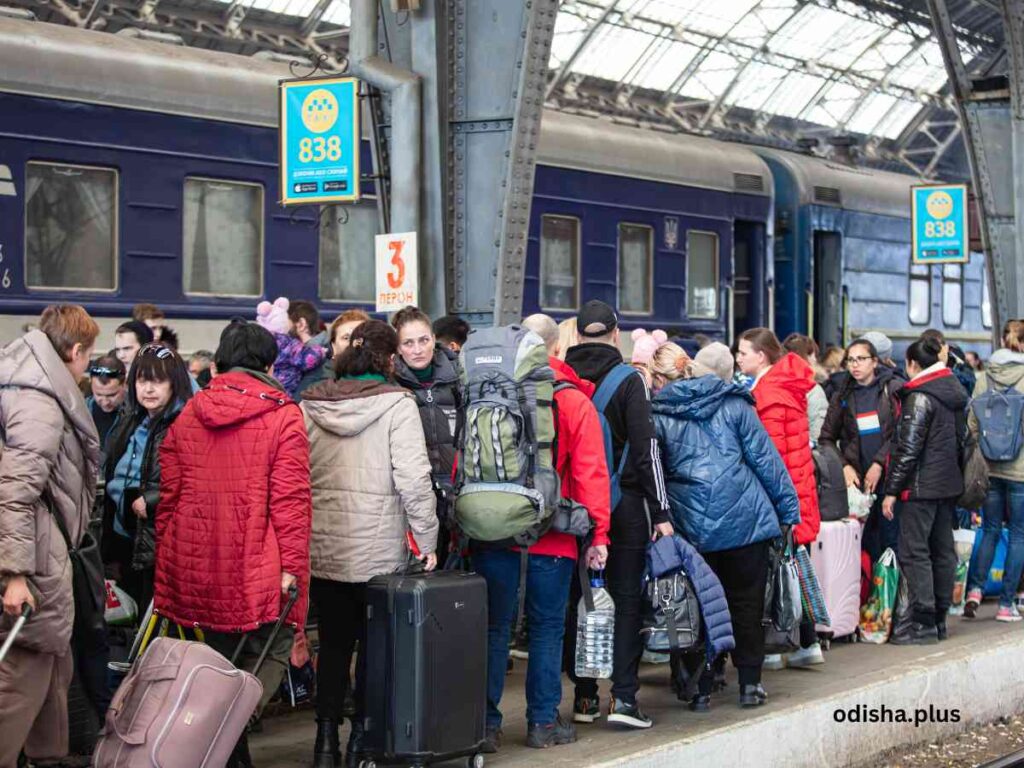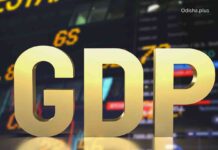Immigration is the number one issue for a multitude of voters and around the government
Suresh Chandra Sarangi

After the election of Donald Trump for the second time as the 46th American President, many storms are brewing in the teacups worldwide. His mercurial behavior and pronouncements, just before assuming office on the 20th of January, have stunned the world. The intelligent feel it is a coup, the students are anxious and the future progress of humanity is in question. Whether it is erecting a wall to control Mexican migration or deciding the future of H1B visas, anxieties loom large on the face of the workforce.
Causality this time is the Human Resources. In his dream of making and thinking America first and America great again, Trump forgets the people who have contributed towards the growth of America. As such America is made up of immigrants after the aboriginals and the native people were dismantled by the colonialists.
So, the debate has gathered much steam and the world focuses on that. In a nutshell, immigration is the number one issue for a multitude of voters and around the government. The Aftermath of the Syrian Civil War is an eloquent testimony to the sufferings of the migrants. The Boat People of Vietnam evokes the sentiment of a people without home or roots in the Deep Sea.
Redefining Globalization
In the book ‘Bound Together’, author Nayan Chanda beautifully presents the process of globalization and its patterns over a long period. It is indeed a breath of fresh air, and refreshingly so, that peels the layers of globalization as a cementing force of human and geopolitical interaction. “The thrilling history of globalization is a candid story of human beings, who have been moving and connecting ever since we developed from Apes”, says celebrated author of India Unbound, Guru Charan Das.
The wide sweep of history has kept records of how traders, preachers, adventurers, and warriors have shaped globalization. Of course, deglobalization started with Brexit becoming a reality and then with conflicts, and wars that have brought fractures in the globalization process.
Some are critical of globalization and how it has destroyed the beautiful gifts of nature, the rainforest, the natural resources, being one of the reasons for the climate crisis inequality, and haphazard urban planning. All said and done, the immigration policies of nations show a shift in our thinking of global perspective and endless questions based on deeper processes of this fragmentation, actually redefining the story of globalization.
History is replete with facts that globalization has happened when millions of people, who are undocumented, have moved boundaries since time immemorial. Civilizations flourished, trade practices were exchanged and the workforce migrated carrying skill and labor in them, thus, binding the world together. By the end of 2010, more than 250 million people lived behind their nation’s border. Of course, adequate work or working conditions also provide impetus to move from country to country.
More than 50 million are from conflict-torn centers, including war-ravaged countries, victims of violence, and natural disasters; lack of work or proper remuneration. The skills of those migrant laborers have been utilized by North American and South American people quite convincingly. The Brookings Institution report has shown that while immigrants represent 15% of the American workforce, they represent a massive 25% of investment in the American economy. Even migrants have unicorns and the type like Google or Uber start-ups in other nations.
Immigrant Technocrats
In another report it is estimated that at least half of the Tech workforce in the US are recruited or have shifted for greener pastures from other nations, in most cases, there are immigrant technocrats. The Tech boom has spurred the growth of migration. Besides, the movement of labor of each category has added to the global international workforce, to a significant extent. Globalization and migration have not only the workforce but also the culture substantially.
Like Japan, which went for the reconstruction of a war-ravaged Nation, migration of the workforce helped build the situation. But subsequently, because of tighter economic conditions restrictions were put by the government on migratory workforce. Coupled with rapid industrialization and a great technological shift, immigration was highly regulated. It is a fact that a culturally diverse workforce transfers competitiveness and the exchange of skills that is so essential to build the economy.
Diversity brings specialization, innovation, and higher levels of proficiency and profitability. Now, it is proved beyond doubt that migration has stimulated the world economy to a considerable extent. But now, there is a wake-up call, on the grounds of immigration. The immigration policy is either flawed or discriminatory. It is known that automation cannot replace all jobs, and therefore, immigrant workers are crucial to the economy of the world. Some nations think that immigrant refugees are sometimes, very violent and create nuisances within the foreign country. France suffered on account of terrorism and radicalization.
The world has changed a lot since the refugee crisis of 2015 when a small child migrant boy was washed away after the boat carrying the refugees capsized on the coast of Turkey, which created outrage, and the conscience of the rich Western nation was shaken. Europe, where these migrants were not allowed entry had its plethora of problems, and accommodating those immigrants not only had concerns on the economic front but had other cultural human, and demographic issues. Climate change is the latest crisis throwing many refugees.
Borderless World
The problem is, whether mankind is moving towards a borderless world without walls or whether the discriminatory divisive immigration policy may amount to more conflicts and a more disturbed world. No, the US has no labor surplus, rather, there is a huge labor shortage, despite large-scale migration. The pandemic added fuel to the fire with large-scale migration. An integrated immigration policy, which is supportive of talent and skill may help any nation in their modernization programme.
It is a long-decided fact that immigration helps the economic well-being of a nation. For long-term economic growth, a calibrated immigration policy is essential. The US Census Bureau’s data says the American work-age population will only be 2% larger by 2035 and in the case of zero immigration policy, the American workforce would decrease by 5% and the US population would shrink by 32% by 2100.
If there were no workers, the investment would suffer, the flight of human capital would be a problem, and technology transfer would meet a dead end. It is estimated that the immigration workforce would add approximately 0.2% percentage points to American GDP. US fertility is declining and so also population and workforce, with additional people entering into old age.
Immigration is an economic imperative, of course. Large-scale immigration distorts the economy and urban planning with added pressure on all resources, including the growth of terrorism on the foreign shore. America’s proposed restrictive immigration policy may not be in their national interest and Donald Trump has to observe and reconsider that work with a balanced approach. Otherwise, job offshoring would be curtailed and innovation as well movement of financial and human capital would suffer a natural death. For Donald Trump and America, maintaining balance in the matter of immigration is a great imperative.
(The writer is a former General Manager of Bank of India and currently a visiting professor at KIIT School of Management. Views expressed are personal.)
#Immigration #Immigrants #ImmigrationPolicy #DonaldTrump #America #USA #Globalization #Diversity #Refugees #ImmigrationReform #Workforce #TechImmigrants #HumanRights #EconomicGrowth





























